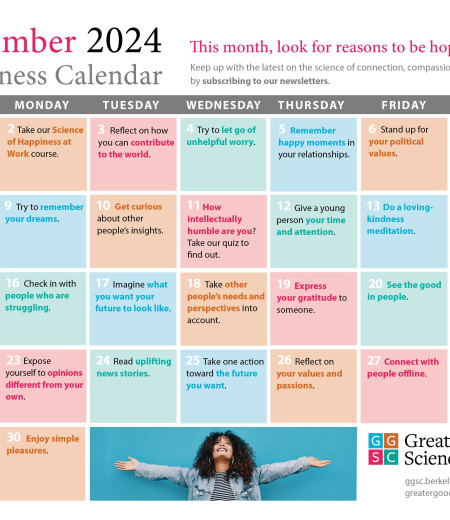As I write, Jason and I are putting the finishing touches on Greater Good's fall issue, which will focus on trust: Why it's declining in America and how we can build it up again. In researching the issue and the issue's introductory essay, I was surprised by how many scholars (as well as regular folks participating in their studies) blamed the decline in trust on the media–surprised in part because the connection is speculative and hard to prove. And yet I think journalist Mark Danner hits it on the head in today's New York Times:
Scandal is our growth industry. In our era, revelation of wrongdoing leads not to definitive investigation, punishment and expiation but to … more scandal. Permanent scandal. Frozen scandal. The weapons of mass destruction that turn out not to exist. The torture of detainees who remain forever detained. The firing of prosecutors, which is forever investigated. These and other frozen scandals metastasize, ramify, self-replicate, clogging the cable news shows and the blogosphere and the bookstores. Unpurged and perpetually unresolved, scandal transcends political reality to become commercial fact.
Try replacing "scandal" with "distrust" in the preceding graf, and you'll see what I mean. What happens when distrust becomes a commercial fact? Surveying the years of scandal surrounding the Bush administration–and the curiously listless response of both the public and our watchdog institutions–Danner concludes: "Alas, scandal — subject, like everything else, to inflation — has become a highly overpriced commodity." Distrust, as many of our contributors will remind us in the forthcoming issue, is often an asset, and a healthy part of humanity. The problem today, as Danner reminds us, is that distrust has become a growth industry; everybody wants to jump on board.
We like to keep things upbeat here at Greater Good. In our introductory essay, Ohio State University sociologist Pamela Paxton and I outline a number of steps America can take to rebuild trust in each other and our institution. Americans, we write, need to see concrete steps to improve institutional transparency and accountability, and to reduce fraud.
But there are also many things that we as individuals can do to rebuild trust. For example, we can join joining community groups, connect with neighbors, and talk to others about important issues in their lives. And if the leaders of national and local voluntary associations work to build better connections across different groups, they will help to rebuild community and a sense of trust.
One of the most interesting things about trust research is how delicately susceptible trust is to a complex web of social forces. For example, authoritarian societies can be distrusting…unless they are culturally homogeneous and egalitarian. Media-saturated societies can be super-distrusting…unless there exists a counter-weight of vibrant grassroots civic associations that work with each other on common goals. It's entirely possible for the scandal industry in America to grow and grow and grow…but we can counteract its influence on a grassroots level, just by talking with each other and giving each other chances to trust. And maybe in the long run, one force can reduce the other to obsolescence.



Comments
Doesn’t trust begin at home…between parents and children? If kids can’t trust their parents, isn’t their ability to form adult trusting relationships diminished?
David | 9:21 pm, August 27, 2008 | Link
The latest scandal to hit Wall Street and corporate America centers on the mutual fund industry. Several mutual fund firms, investment banks and hedge funds have been implicated in “market timing” and illegal late trading of mutual fund shares. These practices have benefited an elite group of investors and fund managers at the expense of millions of small investors.
———————–
Glenisha
Business Sales
Glenisha | 10:48 pm, October 19, 2008 | Link